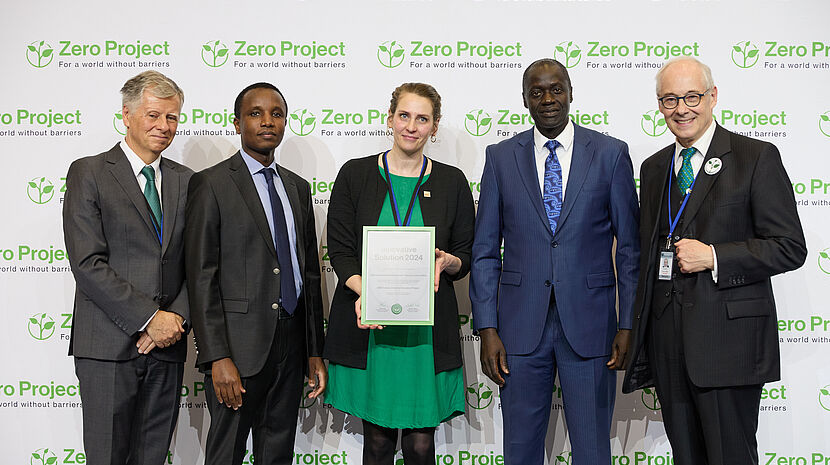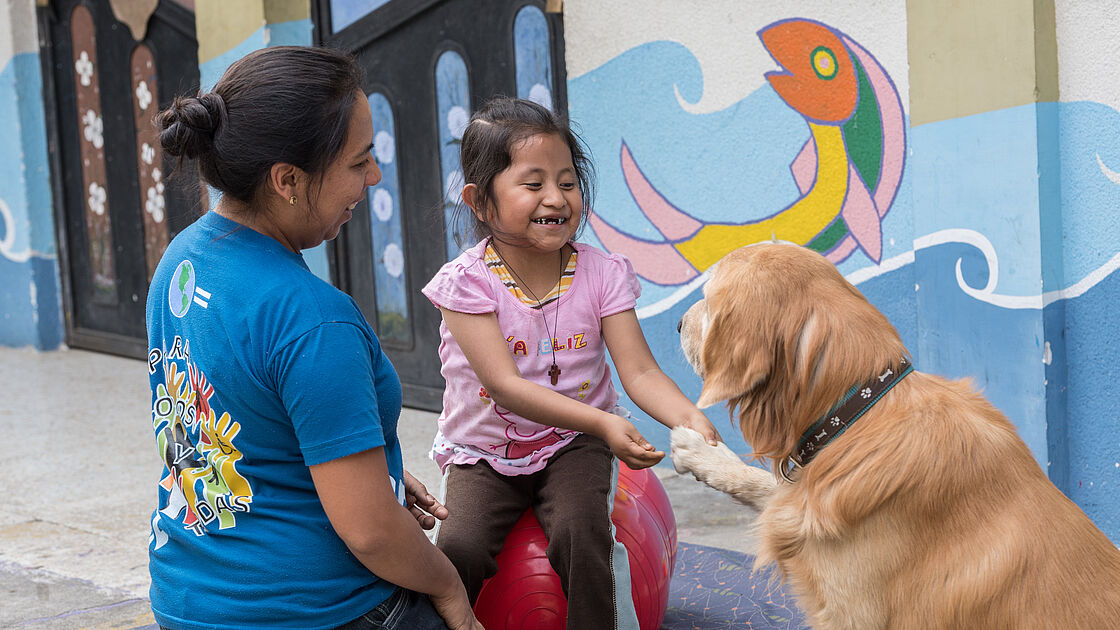CBM Celebrates Triple Win at the Zero Project Conference at the United Nations Office at Vienna

L-R: Dr. Michael Fembeck (CEO of the Zero Project and Board Member of the Essl Foundation), Ronny G. Mutethia (First Counsellor, Embassy of the Republic of Kenya in Vienna), Eva Disegna (Humanitarian Technical Advisor, CBM), Ambassador Maurice MAKOLOO (Ambassador Extraordinary & Plenipotentiary, Embassy of the Republic of Kenya in Vienna), Martin Essl (Founder, Essl Foundation).
©Zero Project/Rupert Pessl
The Zero Project Award is given to projects that address the needs and rights of persons with disabilities. It aims to contribute to global efforts to create a more just, equitable, and inclusive society – a world without barriers.
CBM and its partners received awards for their inclusive education projects during the Zero Project Conference 2024 at the United Nations Office at Vienna, Austria. The event took place over three days from February 21 – 23. It attracted world leaders, speakers from renowned organisations and featured innovations from around the world. This year is especially significant for CBM as we have the honour of receiving not one, but three awards for our pioneering work in inclusive education together with our partners from three continents.
Sian Tesni, Global Advisor for Inclusive Education, was one of the colleagues accepting the awards on behalf of CBM and reflected on their significance: “Education is a fundamental right. But all over the world, children with disabilities still face barriers that prevent them from accessing education and realising their full potential. These awards recognise the creativity and resourcefulness of our partners who work with us to address these barriers, tailor solutions to local needs and create opportunities for children and educators alike.”
The team representing CBM at the conference also included Eva Disegna (Humanitarian Technical Advisor), Carmen Lucía Guerrero (Programme Officer, Central America), and Mauricio Mogollón (ADISA, a CBM partner in Guatemala).
The Zero Project Award is given to projects that address the needs and rights of persons with disabilities. It aims to contribute to global efforts to create a more just, equitable, and inclusive society – a world without barriers.
In 2024, the Zero Project Award will focus on inclusive education innovations. This also includes advances in information and communication technology. CBM and our partners' projects were selected from 164 entries. These entries came from 62 countries across six continents. They are notable for their unique methods of providing accessible, quality education for children with disabilities. This is especially important in challenging environments.
The award-winning Projects

Azucena receives dog therapy at ADISA with Andrea, a physiotherapist, and a dog called Mos.
©CBM/argum/Einberger
The winning projects include a CBM and its partner Asociación de Padres y Amigos de Personas con Discapacidad Santiago Atitlán (ADISA), which, together with three sub-partners, are revolutionising the education system in five districts in Guatemala with Universal Design for Learning (UDL). This method ensures that education is accessible to all children and overcomes barriers such as cultural differences and economic inequalities. With support from the German Federal Ministry for Economic Cooperation and Development (BMZ), this initiative promotes inclusive learning spaces in which children learn side by side, regardless of their abilities.
A joint initiative of CBM, Waldorf Kakuma Project (WKP) and African Inland Church Health Ministries (AICMH) in Turkana, Northern Kenya. This initiative enables children with disabilities in a refugee camp to receive a high-quality inclusive education. In an area facing displacement, food insecurity, and drought, the project excels by teaching educators about inclusive education and motivating the community to support the learning needs of these children. This initiative is supported by (BMZ).
In Gaza, a partnership between CBM and the Atfaluna Society for Deaf Children (ASDC) received the Zero Project Award. Their innovative use of hybrid and blended e-learning methods enables children with and without disabilities to access high-quality education and counselling services, even in remote areas. The European Union supports this project, emphasising the significance of inclusive education and advocating for the rights of persons with disabilities. Eng. Fady Abed, Director of Atfaluna, thanked both the award committee and CBM for their support.
This celebration at the Zero Project Conference 2024 not only recognises our successes, but also reaffirms our commitment to advancing inclusive education worldwide. Together with our partners, we continue to work towards a world in which every child, regardless of their disability, can access and thrive in education.